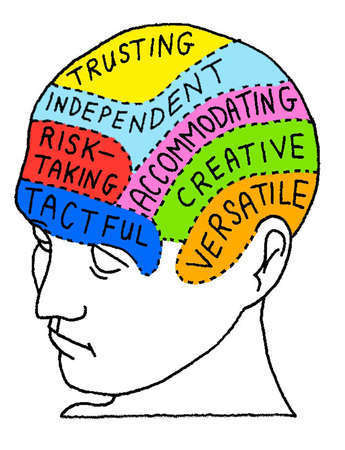Out-Of-Character Moments
 In real life, due to the biology of personality, people cannot act truly out of character without chemical or physical alterations to their brains. So absent illness, injury or psychoactive substances, people don't act out of character, but rather reveal facets of their existing character which are not immediately evident outside of particular environments.
In real life, due to the biology of personality, people cannot act truly out of character without chemical or physical alterations to their brains. So absent illness, injury or psychoactive substances, people don't act out of character, but rather reveal facets of their existing character which are not immediately evident outside of particular environments.This rule needs to be applied to characters, assuming they're human (or another Earth mammal). You could definitely write a magical or alien species which switches personalities, or can turn different aspects of themselves on and off at will. But for people, actions need to fit the character.
Because we see the characters for a limited portion of their lives, it's important to hint at character traits which will surface at a later point. Otherwise it will feel like an out-of-character moment, even if it fits with the character development in the author's head. This doesn't always happen in real life--particularly if someone is being faced with an entirely novel and stressful situation, a side of their personality may well be revealed and surprise everyone. But for the sake of fictional credibility, there has to be some character development pointing in that direction.
Finally, do not use an out-of-character moment to allow someone to solve a major plot problem. It's certainly reasonable to have out-of-character behaviour contributing to them plot, assuming it falls into the illness/injury/chemical cause (or magic, if you're writing a fantasy world). But don't give the bruiser with no brain-to-mouth filter a run of supreme diplomacy because that's what's needed to save the day.
Published on February 25, 2013 01:34
No comments have been added yet.



